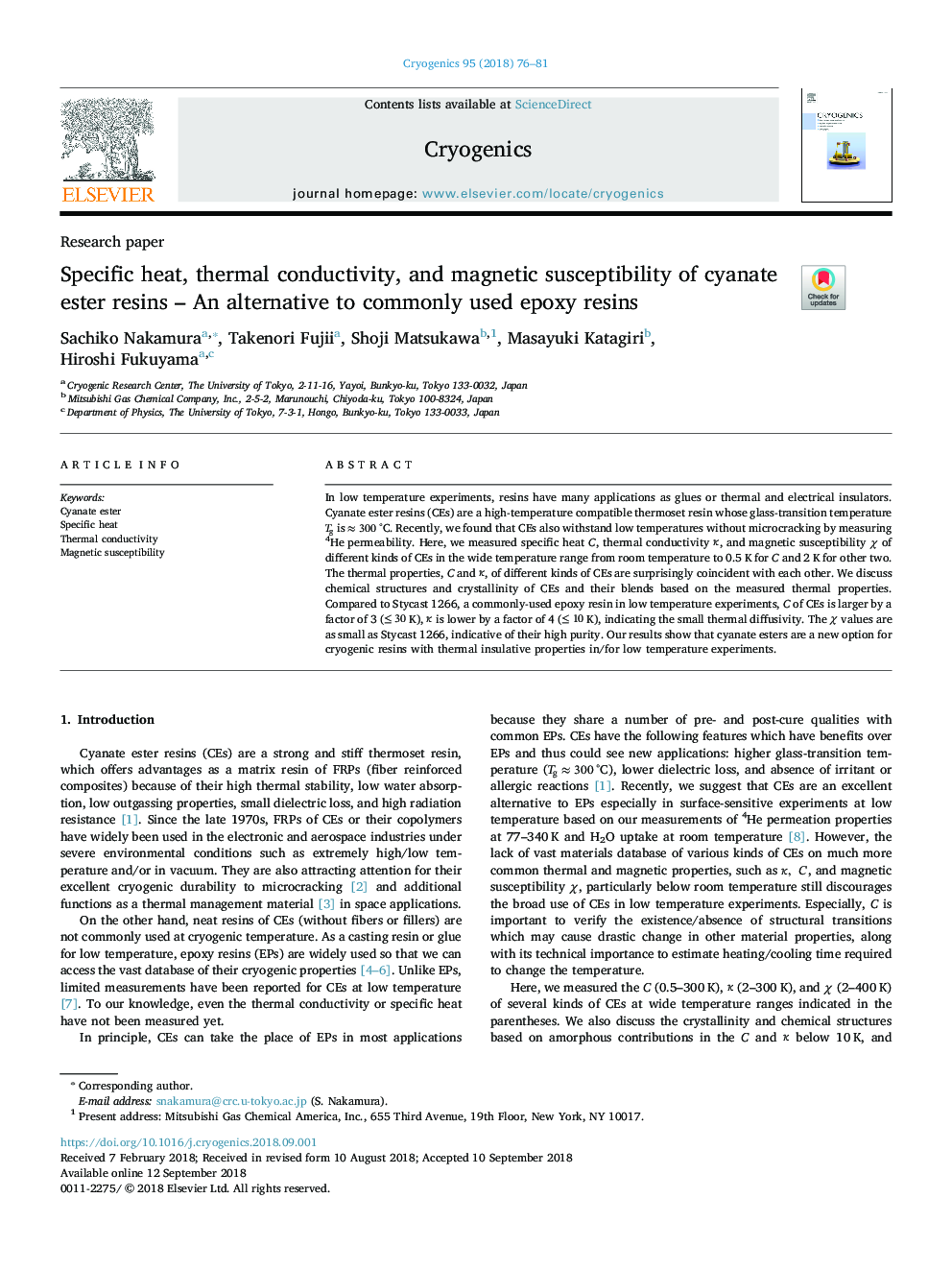| Article ID | Journal | Published Year | Pages | File Type |
|---|---|---|---|---|
| 10141864 | Cryogenics | 2018 | 6 Pages |
Abstract
In low temperature experiments, resins have many applications as glues or thermal and electrical insulators. Cyanate ester resins (CEs) are a high-temperature compatible thermoset resin whose glass-transition temperature Tg is â300â¯Â°C. Recently, we found that CEs also withstand low temperatures without microcracking by measuring 4He permeability. Here, we measured specific heat C, thermal conductivity κ, and magnetic susceptibility Ï of different kinds of CEs in the wide temperature range from room temperature to 0.5â¯K for C and 2â¯K for other two. The thermal properties, C and κ, of different kinds of CEs are surprisingly coincident with each other. We discuss chemical structures and crystallinity of CEs and their blends based on the measured thermal properties. Compared to Stycast 1266, a commonly-used epoxy resin in low temperature experiments, C of CEs is larger by a factor of 3 (â¤30â¯K), κ is lower by a factor of 4 (â¤10â¯K), indicating the small thermal diffusivity. The Ï values are as small as Stycast 1266, indicative of their high purity. Our results show that cyanate esters are a new option for cryogenic resins with thermal insulative properties in/for low temperature experiments.
Related Topics
Physical Sciences and Engineering
Materials Science
Electronic, Optical and Magnetic Materials
Authors
Sachiko Nakamura, Takenori Fujii, Shoji Matsukawa, Masayuki Katagiri, Hiroshi Fukuyama,
